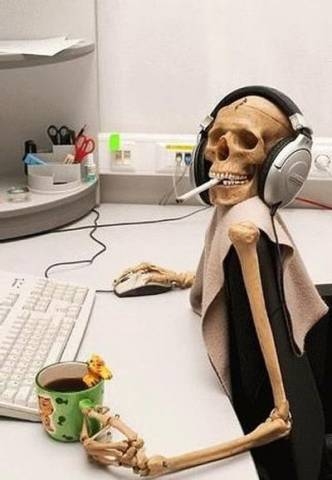| This is a human. An imperfect, asymmetrical, beautiful, lovely mess. |
We generally gain clarity in understanding most things we encounter in life by way of comparing and contrasting them with other things. When it comes to people around us, we are able to view them as they appear and place them beside each other in our minds, to make sense of what they are like: "Gina is a shy person while Linda is very comfortable around people." But most people see themselves as neither shy nor social until they are told. They just interact with the outside world in a way that feels like the only way they can. Their default. And because we all experience our lives and who we are from inside, it's quite a different thing to get to know ourselves.
When we grow into adults, we are given insight as to what types of personalities might do better or find it easier in life and we try to adjust ourselves accordingly. And yet, many of our efforts fail due to a sneaky tendency to assume that once we know how we should be, then we are already how we should be.
Some of the people who say "don't judge" a lot actually do a lot of premature judging themselves. Some people who keep telling other people how to be healthier are smokers.
Some people who complain about a lack of discipline in society can't even put their trash where it belongs.
It should do us some good to accept by default that we are imperfect, flawed, and learning. To try and observe ourselves as we live our lives and not as how we think we should live our lives. Even living needs practice when you put a set of values in the mix.
I am very humbled whenever I take a good look at myself. With all my learning, I'm still a very new, very elementary, very lost n00b. I know of many methods in productivity, health, business, that I know work, but I still find hard to apply anything well, because everyone's different, and will come across different things in their journey, and will have to adjust accordingly. Personally, I have a low attention span, and a great longing for habits but I am simultaneously allergic to them. I get impatient with myself and am prone to self-loathing, but I try to just learn something new about myself that might make it easier next time. And it always gets a little better next time. But I still have a long way to go.
When I try to change, I take it slow. I don't expect myself to be able to do it well right away. Because that's just not how it works. Learning takes time: nobody can say they know how to paint well just because they watched someone else do it. They have to take the time and make an effort to get there.
And they have to be ready to face the truth about where they are right now. Not to wallow about being really bad at the thing they want to be good at, but to know that there's still some-a-ways to go. I know that this quote from Ira Glass has been circulating a lot, and I'm pretty sure you've already read it in its original context:
Now try to think about this, but about how you live your life.
About how much you want to be someone who does good in the world.
There is a gap between your understanding of what a good person is, and what you are able to bring to the table right now.
You will have to keep trying, but once you try enough, you can get there.
Just keep being honest with yourself.





